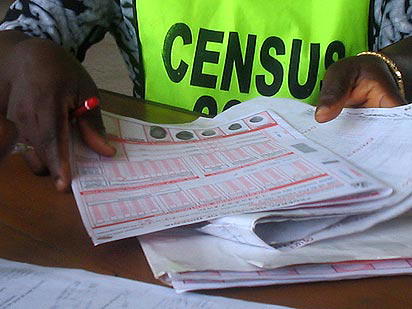
Census
By SAHEED ISIAK
IN many advanced economies, proactive population planning through targeted policy actions has been conceived for meaningful growth and sustainable development with resultant improved socio-economic conditions as well as citizens’ living standards.
The criticality of constructive debates around population planning for development has been recognised across the developed world as they help policymakers and planners make informed decisions by taking into serious consideration the effects of population changes on various sectors, such as education, food security, employment and productivity, healthcare services, infrastructural facilities, and the overall security of lives and property.
While population affects every facet of societal development, discussion around population remains uncommon in Nigeria; and this puts Nigeria’s population which is projected to reach 400 million by 2050, doubling the current estimate, at a demographic nightmare.
Currently, Nigeria records the highest population growth in Africa with the estimated population figure amounting to over 215 million as at 2022. With rapid but poorly planned population growth over the last 50 years, Nigeria is beset by several development challenges ranging from acute poverty to governance, under-developed human capital, and political instability.
It is worrisome that since 2006, Nigeria has not conducted another population and housing census since 2006. Without a comprehensive and up-to-date population data, Nigeria is left with inaccurate demographic, social, and economic growth indicators, which hamper policy implementation. Inadequate population data has hitherto impeded Nigeria’s ability to make informed development planning and policy decisions, perpetuating a cycle of missed opportunities and sub-optimal outcomes.
The multiplier effects of unplanned population growth in Nigeria cannot be overemphasized. In a recent study published by Business Perspectives to examine the impact of population growth on food security in Nigeria, it was observed that the average agriculture output growth between 2011 and 2020, which stood at 3.5% against the backdrop of over 2.6% population growth rate, accounts for the present food insecurity, hunger, and malnutrition. In addition, the Food and Agriculture Organisation, FAO, in January 2023 estimated that 17 million (45%) Nigerians were faced with food insecurity, with this number estimated to increase to 25 million by the end of 2023. This without doubt demonstrates that the country’s unrestrained population growth significantly raises consumption of agricultural production, resulting in food decrease and affecting national food security.
Similarly, Nigeria records the second highest burden of stunted children in the world, with a national prevalence rate of 32 percent of children under five. An estimated two million children in Nigeria suffer from Severe Acute Malnutrition, SAM, just as seven percent of women of child-bearing age also suffer from acute malnutrition, according to UNICEF. With high rates of malnutrition posing significant public health and development challenges for the country, very poor food consumption (quantity and quality) has been identified among the high-risk contributing factors to malnutrition.
Unplanned population growth in Nigeria has been observed as an impeding factor overstretching the limited social services and job opportunities; and this in turn increases the rate of poverty, unemployment, idleness and social exclusion, while deepening the risk of insecurity.
While a significant function of girl-child education in Nigeria is to provide her with diverse basic knowledge, skills, and training which contribute to personal development and the overall national development, more than 50% of girls are not attending school at the basic education level, while one million girls drop out between the first and last year of primary school (UNICEF). In addition, Nigeria accounts for 20% of all out-of-school children in sub-Saharan Africa, with nearly 20 million out-of-school children (Malala Fund).
Likewise, in Nigeria, about 53.40% of youths are unemployed according to youth unemployment rates released by the National Bureau of Statistics in 2022. This again exposes our country to most of the social crimes perpetrated by youths, including the accelerated level of prostitution; armed robbery, rape and all facets of violence can be largely attributed to the incidence of unemployment of youths.
Given this background, deliberate policy measures matched with holistic action plans for implementation have become imperative to activate and drive the idea of smaller families at all levels in Nigeria, and to halt ravaging poverty, youth unemployment, maternal/child mortality and other socio-economic upheavals.
More importantly, adequate and sustainable population literacy must be encouraged and supported through targeted collaboration and public awareness at citizenry levels; as wide gap has been observed in population literacy at individual levels, giving the published Population Perception Survey report by Population Matters and Civil Society Legislative Advocacy Centre, CISLAC, in early 2024. This poses significant challenges to demographic accountability as the main stakeholders in Nigeria Population Conversation.
Non-state actors across the six geo-political zones of Nigeria must consider deliberate policy and legislative engagements leveraging the fact-findings from the Citizens’ Population Perception Survey report to provoke targeted national population planning. These include active adolescent and youth engagement integration as a critical stakeholder in population conversation, community sensitisation and awareness for improved population literacy at citizens’ levels.
All levels of government must decrease population growth through policy actions and legislation that encourage birth control and family planning education, discourage girl-child marriage, support education and empowerment of the girl-child, and embrace ethical planned parenthood.
Moreover, the National Population Commission supported by relevant Committees in the National Assembly must work towards a fresh population census to adequately ascertain allocation of federal resources amongst states; provide vital statistics required for national development planning; guide sound economic planning and promote private sector development; and facilitate adequate disaster preparedness and response.
Lastly, strengthening collaboration among National Population Commission, education sector, civil society, traditional institutions, faith-based organizations is paramount to amplify awareness and sensitisation on population planning and sustainable development.
*Muhammed Isiak, a public policy specialist, wrote from Abuja
Disclaimer
Comments expressed here do not reflect the opinions of Vanguard newspapers or any employee thereof.